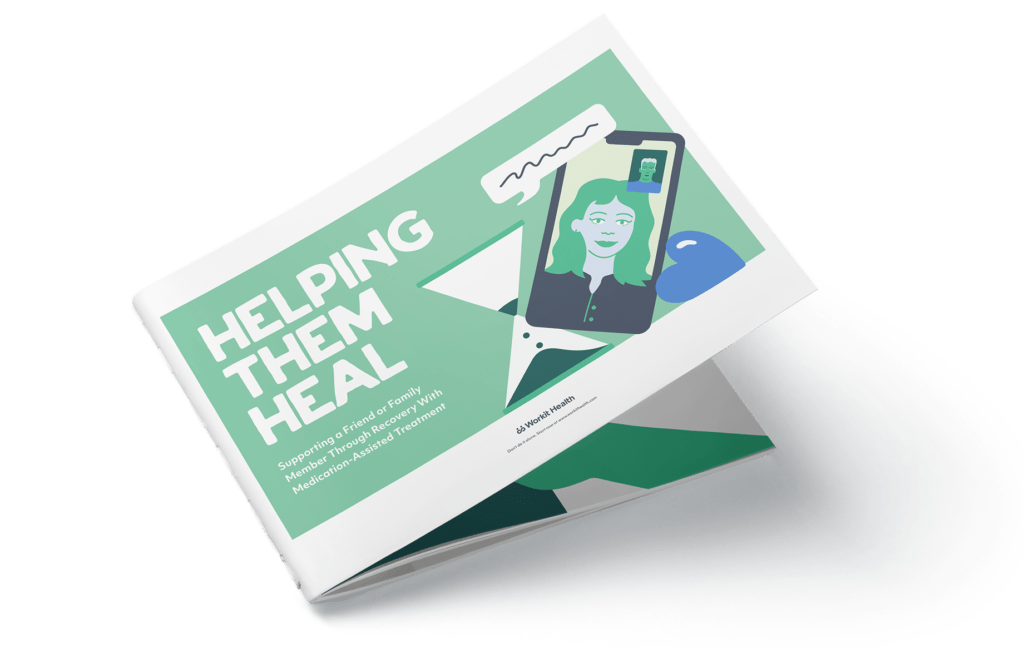Things you can do to support a loved one on Suboxone treatment for
their opioid use disorder
When a friend, family member, or significant other is struggling with opioid addiction, it can feel like you’re experiencing their pain right along with them. Buprenorphine/naloxone (often referred to by its common brand name, Suboxone) is a well-researched, effective treatment for opioid addiction, approved by the FDA. So if your loved one is now receiving medication-assisted treatment that includes buprenorphine/naloxone, you should feel some relief.
Despite being endorsed by doctors and governmental agencies, medication for addiction recovery is accompanied by stigma that often makes family members concerned. Some of our members tell us that their families are pressuring them to stop treatment. This is not only an inconvenience or frustration; it can be life-threatening. Buprenorphine is shown to reduce the risks of relapse and overdose in those struggling from opioid use disorder.
If your loved one is taking Suboxone, a different buprenorphine medication, or another type of addiction medication, like methadone, there are some things you can do to support them in their recovery. We have 7 tips to remember:
1. Give them time to feel better.
Medication-assisted treatment is not an instant cure. It’s important to understand that medication helps to reduce withdrawal symptoms and to treat the physical and mental effects of addiction, but recovery is a slow and steady process. Transitioning to Suboxone and stabilizing in recovery, can be like learning how to live again. It involves relearning a lot of skills and building new habits. Don’t expect your loved one to feel 100% all the time, physically or mentally, especially early in their recovery.
2. Encourage self-care.
When we’re in active opioid addiction, we tend to numb our needs with substances. We don’t identify, honor, or fulfill them. Part of the recovery process is exploring how to take care of ourselves again in a healthier way. This doesn’t mean that you need to take over your loved one’s self-care. But you can give them space and encouragement to take care of themselves. If they let you know they’re going to exercise or stay home for a night of rest and relaxation instead of hanging out with you? Don’t take it personally. Take it as a sign of growth.
“Your loved one is choosing to overcome barriers and receive medication to help them be their best self. ”
3. Smash the stigma.
We’re battling damaging stigma against medication for mental health, in general, and that stigma is especially virulent when it comes to medication for addiction recovery. You can help fight this stigma by vocally supporting your loved one’s decision to choose recovery. It isn’t easy to get buprenorphine treatment in our current system of care: a limited number of clinicians prescribe it, pharmacies may not choose to keep it in stock, and some clinics have strict requirements like showing up in person every day to receive medication. Despite all this, your loved one is choosing to overcome barriers and receive medication to help them be their best self. Be proud of them, and counter negative talk about medication-assisted treatment with facts! To read up on the topic, click here to download our free friends and families guide to medication-assisted treatment.
4. Trust the professionals.
This means leaving your loved one’s medical decisions to them and their care team. This can be hard, especially if you were involved in caring for your loved one during their active addiction, or if you were instrumental in getting them to seek recovery. It’s common to feel like you should still still be engaged and helping them now that they’re receiving treatment. This is understandable, but it is vital to allow an individual to have ownership over their own healthcare plans! For those of us in recovery, this helps us take responsibility for our health, and reminds us that we are competent people who can take care of ourselves. Only your loved one and their care team can make decisions about the right dosages, medications, testing schedule, and number of appointments for their recovery. Everyone’s needs are different and medical and behavioral health professionals are trained specifically to help.
5. Ask questions.
If you have concerns, voice them to your loved one. Speaking your fears out loud can encourage learning and a deeper understanding of addiction itself. Just be sure to voice these thoughts as your own concerns, and not as accusations. For example, if you’re concerned a loved one is just getting high off of Suboxone, ask them about it. Ask how they feel when they’re on the medication, versus unprescribed opioids purchases illicitly, versus when they’re on absolutely nothing or in withdrawal. Fears and concerns often come from a lack of knowledge or understanding about recovery meds (and medication in general). so learning more may ease those fears.
6. Choose communities that are supportive of medication.
If you are in recovery yourself, pay attention to how the people in your recovery community talk about medication-assisted treatment. There is a greater stigma against medication in Narcotics Anonymous than there is in Alcoholics Anonymous, Smart Recovery, or Refuge Recovery. If your current recovery groups are vocally anti-medication, it might be time to evaluate whether they are the best groups for you as you’re actively trying to support a partner on medication. If you are a part of a group that is vocally anti-medication, you have options. You can choose to speak up about the evidence behind medication and fight the stigma within your community, or you might find it safer for your own self-care to leave a community not supportive of medication behind entirely and find new groups that support your own recovery and your loved one’s choices.
7. Take care of yourself.
Being part of a healthy relationship—any kind of relationship—means that your happiness and health cant be wholly dependent on theirs. When a loved one is struggling with addiction, it can be difficult to remember this and find the time or interest to take care of your own needs. Be an example to your loved one by ensuring you are tending to your own mental and physical needs, rather than being consumed with caring for theirs.
A lot of people believe that there is only one correct way to treat addiction, but this is not true. There are as many ways to deal with addiction as there are people who have an addiction. Remember that your own loved one’s path to recovery may not look like what you’d like them to do or expect them to do. The important thing is that it works for them. If it does, give them all your approval and support.





